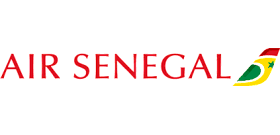 Air Sénégal Expands Regional Reach and Secures Paris Link with Fleet Enhancements
Air Sénégal Expands Regional Reach and Secures Paris Link with Fleet Enhancements
In a decisive move to reinforce its operational stability and growth ambitions, Air Sénégal has announced the addition of a third Airbus A320 to its fleet, sourced through a partnership with GetJet. This strategic acquisition comes as the Dakar-based carrier continues to operate its wet-leased Boeing 777 on the high-demand Paris route, reflecting a hybrid approach that is increasingly shaping the future of African aviation.
The arrival of the third A320 is more than just a numerical boost; it represents a calculated step towards enhancing regional connectivity and ensuring greater schedule reliability. By expanding its narrow-body fleet, Air Sénégal is positioned to increase frequencies on key short- and medium-haul routes, offering passengers more options and reducing the risk of disruptions. This move is particularly significant for the West African market, where consistent service is essential for both business and leisure travelers, and where operational hiccups can quickly erode customer trust and market share.
At the same time, the airline’s decision to maintain its wet-leased 777 operations on the Paris route signals a commitment to sustaining its long-haul presence. The Paris-Dakar corridor remains a vital link for Senegal’s diaspora, business community, and tourism sector. By leveraging wet-lease arrangements, Air Sénégal can ensure uninterrupted service even as it navigates the complexities of fleet renewal and expansion. This approach allows the airline to manage capacity flexibly, respond to fluctuations in demand, and mitigate the risks associated with aircraft downtime or delayed deliveries .
For African carriers, the ability to access flexible fleet solutions is increasingly critical. The continent’s aviation landscape is marked by rapid growth, evolving passenger expectations, and the need to balance ambitious expansion with prudent financial management. Wet-leasing—also known as ACMI (Aircraft, Crew, Maintenance, and Insurance) partnerships—offers a practical way to bridge gaps in capacity, test new routes, and maintain service continuity without the heavy upfront investment required for outright aircraft purchases. This model is gaining traction across Africa, where airlines must often adapt quickly to changing market conditions and regulatory environments .
Air Sénégal’s latest fleet developments are part of a broader strategy to consolidate its position as a leading player in the region. The airline has been steadily building its network, with a focus on both domestic and regional expansion. The addition of the third A320, alongside the recent acquisition of a third Let L410NG, underscores a commitment to strengthening the backbone of its operations and supporting the growth of intra-African travel.
hese investments are expected to improve connectivity between Senegal’s cities and neighboring countries, fostering economic ties and opening up new opportunities for trade and tourism.
Industry observers note that Air Sénégal’s approach reflects a growing recognition among African airlines of the need for operational resilience. The challenges of the past few years—from pandemic-related disruptions to supply chain bottlenecks—have underscored the importance of having a diversified and adaptable fleet. By combining owned and leased aircraft, and by working with experienced ACMI partners, airlines can better weather unforeseen events and maintain the high standards of reliability that today’s travelers demand.
Moreover, the airline’s focus on fleet modernization aligns with broader trends in the global aviation industry. Newer aircraft like the A320 offer improved fuel efficiency, lower emissions, and enhanced passenger comfort—factors that are increasingly important as airlines seek to meet sustainability targets and appeal to environmentally conscious travelers. For African carriers, investing in modern, versatile aircraft is not just about keeping up with competitors; it’s about positioning themselves for long-term success in a market that is expected to see significant growth in the coming years .
As Air Sénégal continues to expand its footprint, the implications for the wider African aviation sector are clear. The airline’s ability to maintain a robust Paris service while simultaneously boosting regional operations sets a benchmark for others in the industry. It demonstrates that with the right mix of fleet strategy, partnerships, and market focus, African airlines can overcome traditional barriers and compete effectively on both regional and international stages.
Looking ahead, the evolution of Air Sénégal’s fleet strategy will be closely watched by industry stakeholders across the continent. The success of its hybrid model could inspire similar approaches among other African carriers, particularly those seeking to balance growth ambitions with the realities of limited capital and volatile demand. As the aviation sector continues to recover and adapt, the lessons learned from Air Sénégal’s experience will be invaluable for shaping the next chapter of African air transport.
For those engaged in Africa’s dynamic travel industry, these developments offer both inspiration and practical insights. The ability to adapt, innovate, and collaborate will be key to unlocking the continent’s vast potential as a hub for regional and global connectivity. Air Sénégal’s latest moves serve as a timely reminder that resilience and flexibility are not just buzzwords—they are the foundation of sustainable growth in today’s competitive aviation landscape.
